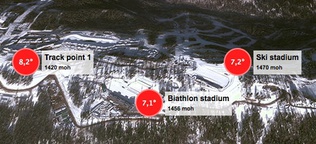Component-based Post-processing System
COMPS processes weather information to produce optimized weather forecasts. COMPS takes information from forecast and observation datasets and downscales, bias-corrects, and produces probabilistic weather forecasts. COMPS is extendable - new schemes can be added.

Features
Modular approach
COMPS separates the task of producing optimized forecasts into components, each of which can be implemented in a variety of ways. The user choose a combinations of schemes that is optimal for their needs.Gridded and point forecast
Produces both gridded fields and tailored forecasts to specific point locations.Deterministic/ensemble/probabilistic
Produces forecasts in deterministic, ensemble, and probabilistic form.Datasets
Interfaces to popular forecast and observation datasets, such as GFS, enabiling users to test new methods with real data.Quality control
Throws out values from datasets that are not within reasonable limits.Verification
Computes verification scores such as mean bias, MAE, CRPS, and ignorance, and allows for new ones to be defined.Flexible I/O interface
Reads datasets and writes forecasts in standard formats such as NetCDF/CF. Custom formats can be created.Usage
Proof-of-concept
Simplifies proof-of-concept of new schemes by allowing comparisons against existing methods using existing datasets.
Case studies
Allows several combinations of post-processing schemes to be tested in order to Find the best combination for a particular problem.
Operational
Produce operational forecasts using optimal combinations of schemes
Current applications

2014 Olympics in Sochi
Operational, hourly-updated temperature forecasts for the Olympic venues in Sochi. Forecasts displayed on yr.no/olsotsji/.